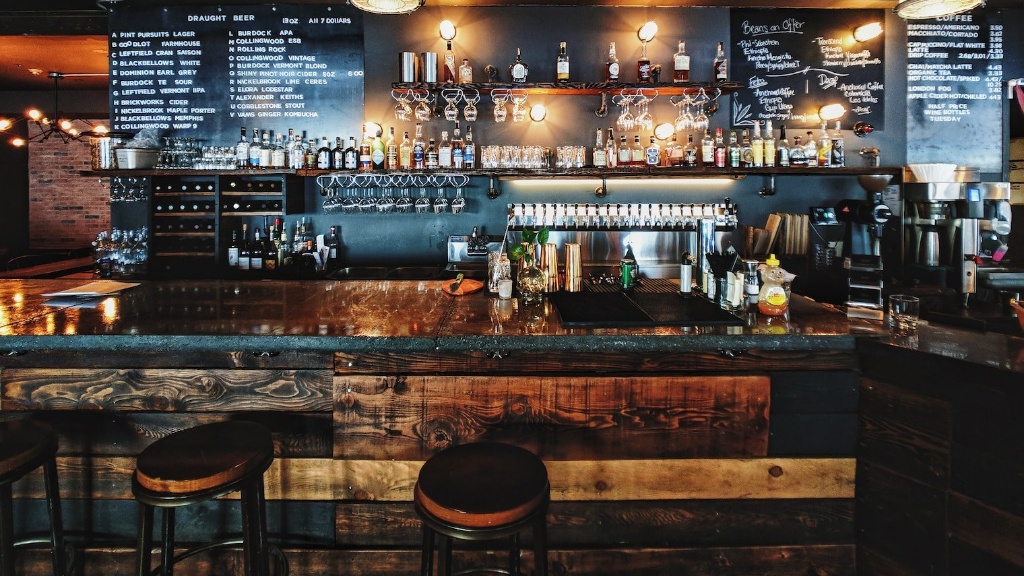The Benefits of Drinking Coffee and Sleeping
Making sure you get the right amount of sleep and the proper quality of sleep is something vital in maintaining a healthy lifestyle. But how can you make sure to get the rest you need, no matter how many late nights you’re pulling for work or for fun? One of the best things you can do for your sleep is adding a cup of coffee to your morning standard!
According to Beverage Daily, there has been a surge in popularity of “sleepy coffees,” which are a combination of caffeine and melatonin, to help people get the amount of rest they need. But more and more studies have found the addition of caffeine to be more effective than melatonin alone. The combination of getting rest and a jolt of energy first thing in the morning is a great way to go about your day.
The benefits of caffeine coupled with a good night’s sleep run deep, and no, it does not take away from your sleep in the slightest. Caffeine is a stimulant and alertness booster, which itself identifies as a great morning pick-me-up, but you don’t necessarily have to enjoy it just in the morning. A cup of coffee or tea in the afternoon when paired with a steady and continual sleep cycle, can help to keep you alert and motivated throughout the day.
Caffeine also has been shown to directly benefit health, as it can increase focus and alertness, primarily due to the physiological effects it has on the body, resting on the release of dopamine, serotonin and noradrenaline hormones. These hormones help you feel awake and alert and are associated with the feeling of contentment and joy. Caffeine doesn’t replace sleep, but rather it helps in sustaining alertness throughout the day.
How Caffeine Keeps You Awake
Caffeine works by blocking adenosine, a neurotransmitter that normally signals your brain to feel fatigued or sleepy. When your body has too much adenosine, it causes drowsiness, but when caffeine is introduced, it blocks the receptors in the brain, preventing the adenosine from doing its job. This is the reason why a cup of coffee will keep you up through the late hours of the night.
Adenosine also plays a role in your natural circadian rhythm, which is responsible for your body being able to recognize the time of day and adjust your energy accordingly. When adenosine is blocked, it can disrupt your natural circadian rhythm, making it more difficult to stay awake during the day and fall asleep at night. For this reason, it’s important to drink coffee in moderation and avoid drinking coffee too late in the day.
In addition, caffeine can also affect how long it takes you to fall asleep, with one study finding that those who consumed caffeine six hours before going to bed took twice as long to fall asleep as those who didn’t. This means that in order to get the most out of your coffee, it’s essential to drink it earlier in the day.
Is White Coffee Better at Night?
White coffee is coffee with added milk or cream, and it has long been a popular choice when it comes to drinking coffee at night. The added milk helps counteract the effects of coffee’s stimulants, making it easier to fall asleep. If you regularly drink coffee late at night, white coffee is a good option to ensure that you get the rest you need. Additionally, white coffee contains protein from the milk, which can help create a calming feeling and make it easier to fall asleep.
Achieve the Perfect Balance With Coffee and Sleep
Making sure to get the right balance of caffeine and sleep is essential for achieving a healthy lifestyle. While caffeine can help improve focus, alertness, and energy, it can also disrupt sleep if not consumed in moderation. For this reason, it’s important to make sure to consume coffee earlier in the day, and to stick to coffee that doesn’t contain added sugar or other stimulating ingredients.
On the other hand, getting enough sleep is just as important as consuming caffeine in moderation. Studies have found that inadequate sleep can lead to various health issues, such as impaired cognitive function and a weakened immune system. To get the most out of your caffeine consumption, make sure to get at least seven hours of sleep each night.
What Time of Day Should You Have Coffee?
As a general rule of thumb, it’s best to consume coffee before noon. Studies have found that drinking coffee after lunch can interfere with your natural circadian rhythm and disrupt your sleep cycle. Additionally, the stimulants in caffeine can cause you to become less alert and more sleepy in the afternoon. So if you’re looking to reap the energizing and alerting benefits of caffeine, make sure to enjoy a cup before 12 p.m.
How Much Coffee Should I Drink to Stay Awake?
When it comes to caffeine consumption, it’s important not to overdo it. Too much caffeine can disrupt your sleep and lead to other health issues. The general recommendation is to consume no more than 400 milligrams (about four cups of coffee) per day. If you find that you’re having trouble sleeping after consuming caffeine, you may want to cut back on your intake or switch to a decaffeinated beverage.
What Can I Drink Besides Coffee to Stay Awake?
Coffee is not the only beverage that can help you stay awake. Tea is another popular choice, and it also contains caffeine and antioxidants. Green tea and black tea are particularly good for boosting alertness due to higher levels of caffeine. Additionally, certain energy drinks can also help keep you alert. However, these drinks can often contain high amounts of sugar and other stimulating ingredients that can be detrimental to your health, so it’s important to proceed with caution when it comes to energy drinks.
Can Coffee Help You Sleep?
You might think that the alerting effects of caffeine would make it impossible to use coffee to help you sleep. However, the National Sleep Foundation recommends brewing a cup of decaffeinated coffee in the late afternoon for a pick-me-up and to mitigate the effects of caffeine later in the day. Decaffeinated coffee contains low levels of caffeine, as well as other sleep-promoting nutrients and antioxidants, so it can help get you prepared for bed.
What Are the Best Foods to Eat Before Bed if You Drink Coffee?
It’s important to eat the right foods before bed when you’re consuming caffeine. Foods that contain protein and carbohydrates can help you fall asleep, while those that are high in fat or sugar can interfere with sleep. Foods like oatmeal, yogurt, and bananas are all good options, as they contain a combination of both carbs and protein to help you feel sleepy.
How Can Drinking Coffee Impact Your Sleep Health?
If you’re not careful, caffeine consumption can negatively impact your sleep health. Too much caffeine can disrupt sleep and make it harder to fall asleep at night. Consuming coffee or other caffeinated beverages too close to bedtime can cause you to feel alert and wide-awake, which can interfere with your natural sleep cycle. In addition, caffeine consumption can also cause anxiety, which in turn can interfere with your ability to fall asleep.
But drinking coffee in moderation earlier in the day and maintaining a regular sleep schedule can help you get the amount of rest you need. Caffeine can help you stay productive and alert throughout the day, and getting enough quality sleep will ensure that you’re well-rested and ready for the next day.




